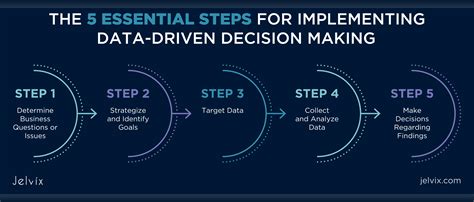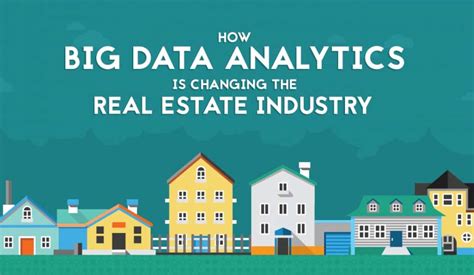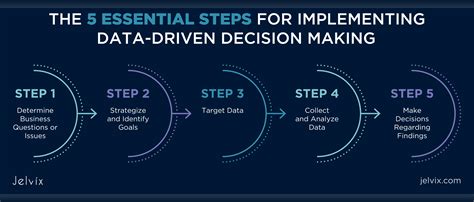Building a Strong Network

Having a strong network is paramount in growing your real estate business. Real estate is all about connections, and the more relationships you have, the higher the chance for success. Here are some tips on how to build a strong network.
First and foremost, attend industry events and network with other professionals. Attend conferences, seminars and open houses and meet other agents, brokers, appraisers, property managers and lenders. Join local real estate associations, attend meetings and become a member. You can also join online forums and groups for real estate and mortgage professionals. These meetings and groups create an opportunity for you to meet like-minded people, exchange ideas and knowledge and create lasting connections.
Second, create a social media presence. Almost everyone is on social media these days, and utilizing these platforms can result in a large following. Share your listings, industry news, advice and behind the scenes glimpses of your day-to-day activities. Interact with followers to create engagement and community. Social media is a valuable tool for marketing your business and for developing relationships with clients. Don’t forget to connect with other professionals in the industry on social media as well.
Third, host events for clients and potential clients. Plan get-togethers, open houses and other events to connect with your clients and meet new ones. For example, you can host a client appreciation party or an open house for one of your listings. This can help you build relationships, showcase your properties and demonstrate your knowledge of the market. Virtually, one can also hold online events like webinars, Q&A sessions on social media, and many more.
Fourth, leverage your connections. Maintain a database of all the people in your network and categorize them based on their profession, area of business and interest. Follow up with your clients and other professionals in your network regularly. Send them hand-written notes or email newsletters about industry updates or new listings. Referrals from past clients, friends and colleagues can be the most lucrative business, therefore, maintain a good relationship with them in your networks. In addition, make sure your clients are satisfied with your services and ask them for feedback and reviews.
Fifth, be active in your community. Attend and participate in local events and activities, it is a great way of meeting potential clients and professionals in your area. Join a charity event or take part in community organizations like clubs or local government committees to meet individuals that might have the opportunity to do business with you.
In conclusion, building and maintaining a strong business network takes time, consistency, and effort, but it is crucial for any entrepreneur to succeed in the real estate industry. Attend industry events and network, create a social media presence, host events, leverage your connections, and most of all, be active in your community. These steps will help you build positive relationships, generate leads and grow your real estate business.
Strategic Marketing and Advertising
As a real estate agent, you know that the key to success is a constantly growing stream of leads. One way to achieve this is through strategic marketing and advertising. However, it’s not just about blanket advertising or haphazard marketing. It’s about creating specific and targeted campaigns that reach the right people at the right time, in the right place. In this article, we’ll explore some of the key elements that make up successful marketing and advertising, and provide some tips on how to implement them in your own business.
Targeted Marketing
The first step to creating a successful marketing campaign is to understand your target audience. Who are they? What are their needs and wants? What motivates them? Once you have a solid understanding of who your ideal client is, you can begin to create a targeted marketing plan. This can include everything from PPC ads on social media platforms to email marketing campaigns. The key is to create content that speaks specifically to your target market. For example, if you specialize in luxury properties, you’ll want to create content that appeals to high-income earners, such as showcasing stunning luxury homes or highlighting luxury amenities in a given area.
Effective Advertising
When it comes to advertising, it’s not just about getting your name out there. It’s about creating a campaign that is effective at driving leads and sales. One way to achieve this is by using online advertising, such as Google Ads or social media platforms. However, effective advertising also requires a solid understanding of what motivates your ideal client to take action. Therefore, it’s important to create ads that speak directly to their needs and pain points. For example, if you specialize in first-time homebuyers, you may want to create an ad that focuses on how easy it is to get started with your services.
Consistent Branding
Consistent branding is an essential element of successful marketing and advertising. Your brand is what sets you apart from your competitors and helps to establish trust with your clients. Therefore, it’s important to ensure that your branding is consistent across all of your marketing and advertising efforts. This includes your website, email marketing campaigns, social media profiles, and any other branding materials you create. By using consistent colours, logos, fonts, and messaging, you’ll be able to reinforce your brand and make it more memorable for potential clients.
Social Media Marketing
Social media marketing can be a powerful tool for growing your real estate business. Platforms like Facebook, Twitter, and Instagram are great for showcasing your properties, generating leads, and building relationships with potential clients. However, it’s important to use social media strategically. This means creating content that is engaging and relevant to your target market, participating in conversations, and using paid advertising to extend your reach. By building a strong social media presence, you’ll be able to stay top-of-mind with potential clients and generate more leads for your business.
Data-Driven Decision Making

In a business like real estate, data plays a vital role in making informed decisions. Whether it is about making marketing strategies, analyzing the market trends, understanding customers’ preferences, pricing properties, or predicting the future outcomes of the business, data-driven decision making can help real estate businesses to achieve success.
Without data, businesses might end up making decisions based on assumptions, intuitions, and gut feelings, which can lead them to making mistakes and flawed decisions.
Why Data-Driven Decision Making Is Important in Real Estate Business

Data-Driven Decision Making in Real Estate is important because it helps businesses to identify patterns, connections, and insights that cannot be recognized through general observations. By analyzing large sets of data, businesses can identify trends, consumer behavior, and preferences that can be leveraged to make better business decisions.
For instance, data can help real estate businesses to determine the locations where properties are in high demand and what amenities buyers are looking for. This information can be used to identify what properties to include in their inventory and establish the prices more accurately. This is beneficial not only in pricing the properties, but also in avoiding long periods with no sales from plummeting property prices which can affects the overall business growth.
The use of data-driven decision-making can also help uncover what marketing strategies work best based on customer demographics, preferences, and behavior. This analytical data enables businesses to fine-tune their marketing efforts to specific customers, neighborhoods, and interests, resulting in more effective marketing campaigns and closing more sales.
Effective Use of Data-Driven Decision Making in Real Estate

The first step in implementing data-driven decision making in real estate is data collection. Real estate businesses should gather information from various sources such as MLS, online listings, social media, customer data, online reviews and surveys, and other external data sets. All this data should be organized and consolidated into a data warehouse or a centralized database to facilitate the analysis process.
The implementation of analytical tools and techniques is another important aspect of data-driven decision making. These tools help businesses to analyze and generate insights from data sets. Real estate businesses should make an effort to train their employees to use analytical tools and interpret data effectively.
A successful implementation of data-driven decision making in real estate requires a change in the organizational culture. This change means adopting a data-driven mentality and breaking away from traditional decision-making processes, which rely on intuitions and assumptions. Data should be at the forefront of decision-making processes, and every business decision should be backed by data.
Conclusion

Data-driven decision-making has a significant impact on the success of real estate businesses. Using data to drive business decisions helps businesses become more efficient, effective, and profitable in a highly competitive market. This shift towards data-driven decision-making requires continuous investment in data collection, analytics, and training in order to make informed decisions and achieve long-term success.
Embracing Technology and Innovation
In today’s fast-paced world, technology has become an essential tool for businesses in virtually every industry. The real estate sector is no exception – embracing technology and innovation is crucial for growth and survival. In this article, we’ll discuss how using technology and innovation can help to grow your real estate business.
1. Invest in a Strong Online Presence
The internet has become the go-to place for many people when searching for properties to buy or hire. To grow your real estate business, it’s crucial to have a strong online presence. Having a website ensures that your business is visible to potential clients. Your website should be user-friendly, mobile-responsive, and easy to navigate. You should also use high-quality images and videos of your listings as they have proven to be more effective than text alone. Investing in digital marketing is also key to attracting more potential buyers and renters to your website.
2. Leverage Social Media
Social media is a powerful tool for reaching a wider audience and increasing brand awareness. Create social media accounts to promote your business and listings on platforms such as Twitter, Facebook, LinkedIn, and Instagram. These platforms allow you to share photos, videos, and other content to showcase your listings. You can also use these platforms to interact with potential clients and answer their questions in real-time.
3. Use Virtual Tours and Open Houses
Virtual tours have become increasingly popular in the real estate industry. They enable potential clients to view properties from the comfort of their own homes. Virtual tours are especially helpful in attracting out-of-town clients who can’t visit the property physically. Hosting virtual open houses is also an excellent way to showcase your properties while adhering to social distancing guidelines during the COVID-19 pandemic.
4. Implement Customer Relationship Management (CRM) Systems
A CRM system streamlines and manages customer interactions, giving your team the tools to manage leads, track interactions, and close deals. A good CRM system can perform tasks such as lead tracking, customer segmentation, and communication. They also help you identify trends, forecast sales, and generate reports. A good CRM system can save you time and increase your efficiency by automating manual tasks and keeping your data organized.
Having said that, choosing the appropriate CRM system for your business is critical. Several CRM systems are available in the market, each with its features and capabilities. It’s best to do your research and select one that addresses your business needs and goals. Additionally, you may have to train your staff on how to use the system and ensure that it’s integrated with other tools you currently use as a business.
5. Utilize Real Estate Software
Technology has enabled the development of software products specifically designed for the real estate industry. Real estate software systems offer features that simplify time-consuming tasks such as property management, record keeping, and customer relationship management. Real estate software is customizable, allowing you to choose the features that align with your business objectives. Additionally, it’s easy to use, allowing you to manage your business remotely, giving you more flexibility in your schedule.
In conclusion, embracing technology and innovation is an effective way to grow your real estate business. Tools such as a strong online presence, social media marketing, virtual tours, CRM systems, and real estate software systems streamline your processes, increase efficiency, and enhance your customer service. Continuously researching and adapting to new technology and innovations will help you stay ahead of your competition in the real estate market.
Providing Exceptional Customer Service
Providing exceptional customer service is one of the cornerstones of growing a successful real estate business. Happy, satisfied clients are more likely to refer you to their friends and family and leave positive reviews which will attract new clients. In this subsection, we will discuss five ways to provide excellent customer service in your real estate business.
1. Communicate often and clearly with your clients: Communication is key to building a successful client-agent relationship. Make a habit of checking in with your clients weekly, even if there is no new housing inventory in the market. Keep them up-to-date on any changes in the market or updates about their search, even if the changes are minor.
2. Listen to your clients: Listening to your clients is an essential part of building trust with them. Make sure you understand exactly what they are looking for, even if there are more specific requests that may seem difficult to accommodate. By listening carefully and making an effort to understand what they want, you will ultimately be able to find the best property for them.
3. Be responsive: Responding to your client’s questions and concerns in a timely manner is critical to building excellent customer service. Clients may feel anxious or stressed during the buying or selling process. Responding to them quickly, explaining the process, and adding a sense of perspective will help reassure them and keep them engaged in the process.
4. Celebrate milestones: When your clients purchase or sell a property, it’s a significant achievement. Celebrating these milestones with them shows that you care and appreciate their business. A thoughtful gesture such as a gift or a congratulatory note will go a long way in building a strong relationship with your clients.
5. Go above and beyond: Going the extra mile for your clients by exceeding their expectations will set you apart from the competition. For example, if you know your client’s interests or hobbies, you can suggest local events or restaurants they might enjoy checking out. These small gestures show that you value their business and are committed to helping them find the perfect property.
Providing exceptional customer service is crucial for the growth and success of your real estate business. By listening to your clients’ needs, being responsive, celebrating their successes, and going above and beyond will help to build a strong relationship with them, and ultimately lead to more referrals and a larger client-base.

